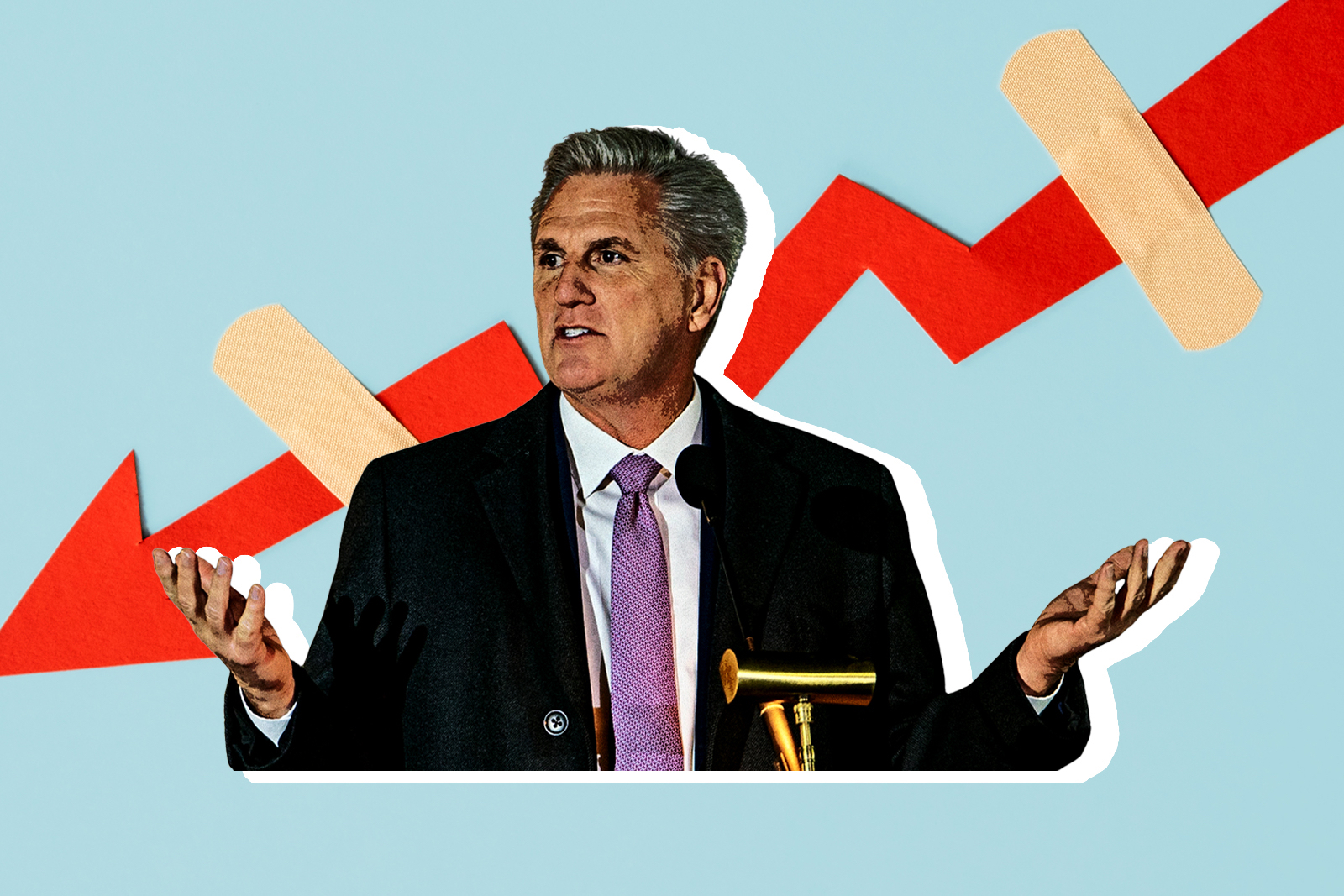
Politics
Americans Should be Wary of the GOPs ‘Commitment to America’
Before the United States contemplates implementing the GOP’s “Commitment to America” plan, they should look at the state of the United Kingdom’s reeling economy and think again. Last week, the United Kingdom dispatched its second prime minister in a matter of months after her radical economic plans proved so disastrous that it left interest rates soaring and thousands of families on the brink of ruin. The GOP’s Commitment to America plan looks an awful lot like the ‘mini-Budget’ that sent the UK into its current spiral. The U.S. ought to heed the warning.
The GOP’s Commitment to America has remarkable echoes of the Newt Gingrich “Contract with America” from the 1994 midterms, and its stated aims are markedly similar. The proposal, although scant on detail, provides the commitment to, if not specifics of, “pro-growth tax and deregulatory policies.” These are not new aims for the GOP, but its proponents must be wary of what happened in the United Kingdom when such plans were pursued in an unsuitable economic climate.
Earlier this year, inflation in the UK topped 10%, and interest rates have been steadily climbing since the summer. Soaring energy prices caused by the war in Ukraine forced government intervention to prevent gas bills from climbing above £6,000 per year, and the deficit grew yet further. The nation needed to tighten its belt and renew confidence in its economy; that’s not what Liz Truss did.
Just a few days after Parliament reconvened following the death of HM Queen Elizabeth, Liz Truss’ Chancellor of the Exchequer, Kwasi Kwarteng (the UK equivalent to the Treasury Secretary) delivered a tax-cutting, deficit-growing, not-so-‘mini’ mini-Budget which immediately sent the UK economy into freefall and caused shudders in international financial markets. Income tax was cut, and the top rate of income tax was abolished altogether, creating a £45 billion deficit increase. Future growth was supposed to pay for it, but the government refused a report analysing whether this future growth would come to fruition.
Within a matter of weeks, Truss resigned and every one of her tax cuts was scrapped. Markets panicked at her unfunded tax cuts — which she pursued without any kind of economic modeling — causing the pound to collapse to its lowest-ever level against the dollar and causing gilt yields to rise and increase the cost of government borrowing. She left the economy even more precarious. Her more fiscally prudent successor, Rishi Sunak, spent much of the summer warning about the damage a tax-cutting, deficit-growing economic plan would cause if implemented in the current climate.
America’s economic outlook is not much rosier than Britain’s. Although the U.S. has been insulated from some of the fuel inflation caused by the war in Ukraine, Americans still face rapidly increasing interest rates and inflation. In addition, American taxes are already significantly lower than the United Kingdom’s, meaning there is even less room to manoeuvre. Cutting taxes and ballooning the deficit may prompt a similar response on Wall Street as we witnessed from the City of London, which required a Bank of England bond-buying programme to stabilise. A similar response in the United States could lead to a far larger contagion than in London. The result could be a 2008-style financial meltdown.
Cutting taxes is a noble aim, and like your GOP, it has been the primary platform of the UK’s Conservative Party since Margaret Thatcher. Both the American and British conservative parties have championed the principle that economic growth can be best achieved by putting money into people’s pockets, but they also agree that the realities of market forces trump ideology. Ignoring the rising interest rates and a growing deficit — trusting the ideology of F.A. Hayek and Arthur Laffer that taxes can, and should, always go lower — was Liz Truss’ downfall.
America’s economy is more robust than the United Kingdom’s. It is a far larger country with a far larger economy and holds much more of its own debt — making it less vulnerable to currency collapse. Nevertheless, U.S. consumers saw the greatest price increases in 2022 than their economy has experienced in 40 years with prices going up 9.1 percent. The dollar ought to be robust, but it can only remain so if the nation’s budget plans function in step with the market forces at play.
The United States is not immune to the damage of a ballooning deficit. The U.S. is already heading into a recession, and spooking the market with wrongheaded solutions could create deeper trouble. From the romanticism of the relationship between Reagan and Thatcher, the United Kingdom and the United States have been in lockstep about a low-tax, high-growth economy. But here’s a word of warning from across the pond: things get painful when you ignore the markets.

